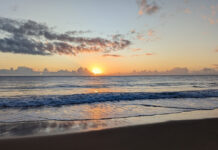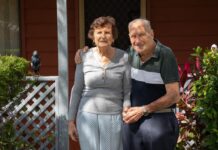
CQUniversity researchers exploring ways to make beaches more accessible want to hear how older residents and people living with disability or mobility limitations currently use the beach.
The U-BEACH: Tides of Change study is led by CQUniversity Physiotherapy and Occupational Therapy academics, and will inform planning for improved beach accessibility throughout Australia, and impacts of beach-based therapeutic interventions.
Bundaberg-based research leader Sasha Job said the pilot study for this project has already helped drive Bundaberg’s first accessible beach, which she is hopeful will launch later this year.
“The accessible beach movement is quite new, so there is not currently a suggested or recommended model of how to make a beach accessible,” Ms Job said.
“We’re hoping this research can help inform that standard, and make it easier for regions right around Australia to prioritise accessible beaches.”
The anonymous online survey is open to all Australians aged 65 or older, and people living with disability or mobility limitation – or their carer or service provider acting on their behalf.
The survey aims to understand participants’ current levels of physical activity, preferred beaches to visit, patterns of beach use, challenges faced and positive influences on visiting the beach , and impacts of beach visits on health, well-being and physical activity.
Ms Job led an initial U-Beach research survey in 2020, focused on experiences in the Bundaberg Region.
That data is helping drive the implementation of Bundaberg’s first accessible beach, at Neilson Park Beach in Bargara.
The project will build on existing Surf Life Saving Queensland infrastructure, to include a beach path to support wheelchairs and walking frames, sand and ocean friendly wheelchairs, and community activities to promote the new facilities and beach-based experiences.
Ms Job’s excited about launching the accessible beach later this year, and also inspiring more regions to get serious about inclusive beaches.
“I would love to see people with mobility challenges and disabilities be able to access the beach and enjoy the magic of the beach. Everyone deserves the beach, and that’s with no exception,” she said.
All information gathered in the survey is confidential, for more information contact Sasha Job on s.job@cqu.edu.au or click here.







